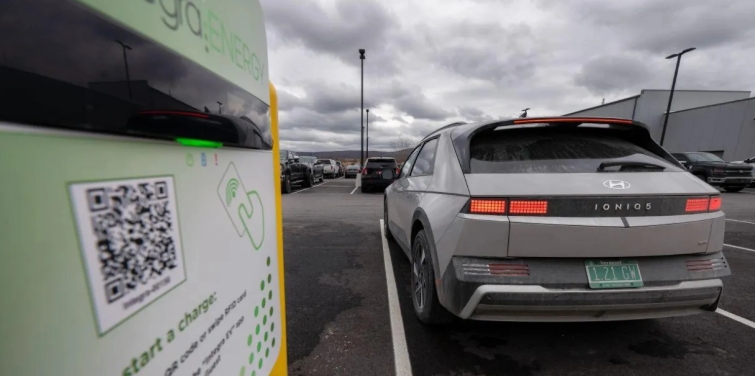
The rapid growth in EV adoption has doubled Vermont’s EV fleet in two years, supported by an expanding charging network. The state now has 459 public EV chargers, including 92 DC fast chargers, facilitating the shift to electric mobility. Battery electric vehicles (BEVs) account for 60% of Vermont’s EV fleet, while plug-in hybrid electric vehicles (PHEVs) comprise the remaining 40%, offering versatile options for drivers.
Popular EV models in Vermont as of late 2024 include the Hyundai Ioniq 5, Nissan Ariya, Toyota RAV4 Prime PHEV, Tesla Model Y, and Ford F-150 Lightning. These vehicles are favored for their reliability and suitability for Vermont’s climate and terrain. Michele Boomhower, Vermont’s Department of Transportation director, stated: “It’s only getting easier for Vermonters to drive electric,” highlighting the increasing variety of EV models, including trucks and SUVs with all-wheel drive.
Vermont’s strong EV adoption earned it the top ranking from the Natural Resources Defense Council in 2023 for reducing transportation-related greenhouse gas emissions. This reflects the state’s commitment to sustainable mobility and its leadership in clean energy initiatives.
Local dealerships are playing a key role in this trend. Nucar Automall in St. Albans, for example, installed 15 EV chargers with $25,000 from Efficiency Vermont’s EV Readiness Incentive program. Ryan Ortiz, general manager at Nucar Automall, noted: “Having these chargers on the lot makes it easier for customers to see just how simple charging an EV can be.” He also emphasized the growing affordability of EVs, driven by a wider range of models and an increase in pre-owned EVs from leases.
Vermont’s EV surge, supported by infrastructure growth and local initiatives, positions the state as a leader in sustainable transportation, meeting the needs of residents and reducing environmental impact.